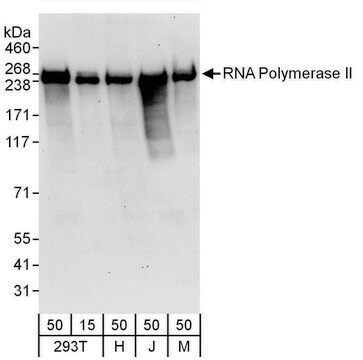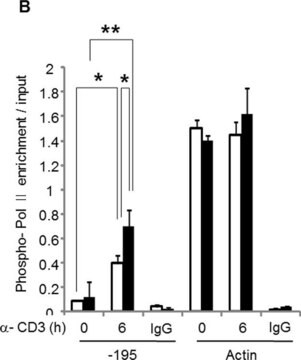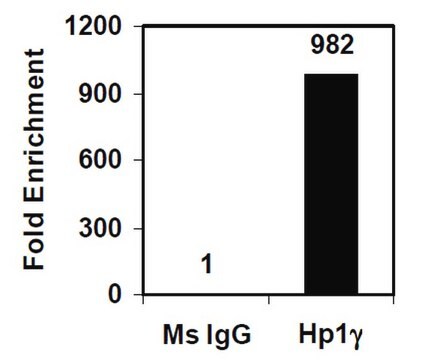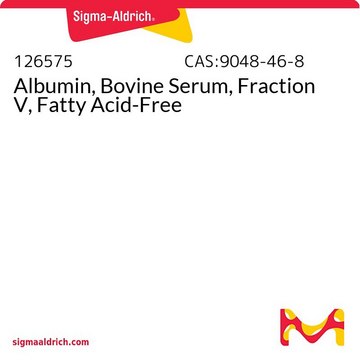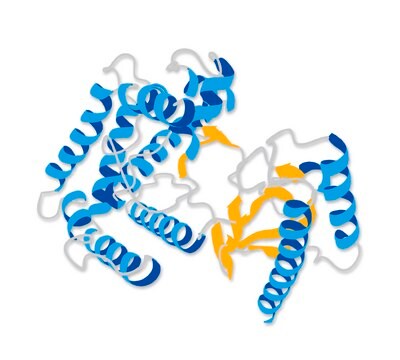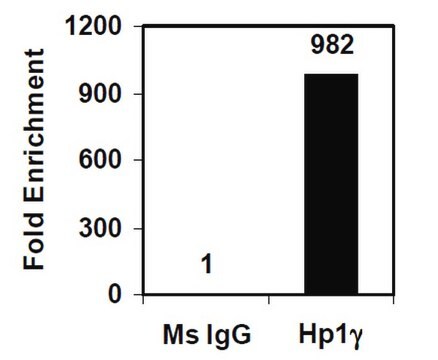CBL221
Anti-RNA Polymerase II Antibody, clone ARNA-3
ascites fluid, clone ARNA-3, Chemicon®
Synonym(s):
DNA-directed RNA polymerase II subunit RPB1, DNA-directed RNA polymerase III largest subunit, RNA polymerase II subunit B1
About This Item
Recommended Products
biological source
mouse
Quality Level
antibody form
ascites fluid
antibody product type
primary antibodies
clone
ARNA-3, monoclonal
species reactivity
kangaroo, human, Drosophila
manufacturer/tradename
Chemicon®
technique(s)
immunohistochemistry: suitable
western blot: suitable
isotype
IgG1
NCBI accession no.
UniProt accession no.
shipped in
wet ice
target post-translational modification
unmodified
Gene Information
human ... POLR2A(5430)
General description
Specificity
Immunogen
Application
Immunohistochemistry: 1:100; Frozen tissue; fixation recommendation - incubate tissue with 2% paraformaldehyde in PBS for 10 min, wash in PBS for 5 min, incubate in 0.2% Triton X-100 in PBS for 5 min, wash in PBS for 5 min. Incubate with antibody one hour.
Optimal working dilutions must be determined by the end user.
Physical form
Analysis Note
Positive for drosophila, kangaroo kidney epithelial cell line PtK2, and human HeLa and HEp-2 cell lines.
Legal Information
Not finding the right product?
Try our Product Selector Tool.
Storage Class Code
10 - Combustible liquids
WGK
WGK 1
Regulatory Listings
Regulatory Listings are mainly provided for chemical products. Only limited information can be provided here for non-chemical products. No entry means none of the components are listed. It is the user’s obligation to ensure the safe and legal use of the product.
JAN Code
CBL221:
Certificates of Analysis (COA)
Search for Certificates of Analysis (COA) by entering the products Lot/Batch Number. Lot and Batch Numbers can be found on a product’s label following the words ‘Lot’ or ‘Batch’.
Already Own This Product?
Find documentation for the products that you have recently purchased in the Document Library.
Our team of scientists has experience in all areas of research including Life Science, Material Science, Chemical Synthesis, Chromatography, Analytical and many others.
Contact Technical Service
